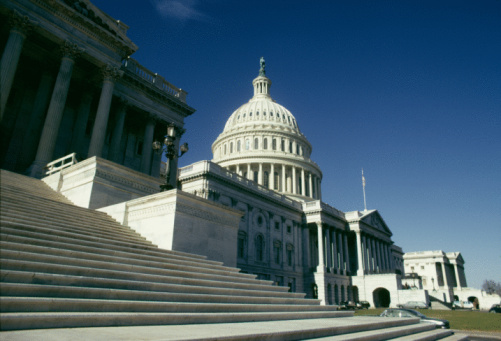Richard Cordray, Director of the Consumer Financial Protection Bureau, used his first public appearance since his appointment to explain how the Bureau will accomplish its goals. In his short speech, Cordray revealed a vague to-do list for the agency. He provided neither a timetable for action nor a definitive outline of penalties for rule-breakers.
Cordray’s focus on the years ahead led members of his audience to ask him few questions.
Cordray gave the speech to a Republican-controlled subcommittee of the House Oversight Committee. He held back from describing the past abuses of banks and nonbanks. Cordray’s deliberate reserve left President Obama with plenty of material to stir up emotion in Tuesday’s State of the Union address.
At the SOTU address, Cordray was introduced by Obama. He then sat in the First Lady’s box. Senator Scott Brown (R-Mass.) was the only Republican to stand and applaud when Obama mentioned Cordray’s name. Brown is running against Elizabeth Warren, the political force behind the creation of the Bureau.
Cordray’s choice to steer away from volatile rhetoric helped portray him as a calm, careful leader. Yet Cordray is not as impartial as he seems. He served as the chief of the Bureau’s enforcement unit before Obama named him as director.
Among the more controversial statements in Cordray’s speech was a declaration that the Bureau will consider filing lawsuits against institutions that violate the Bureau’s rules. Representative Darrell Issa (R-Calif.), chairman of the full Oversight Committee, asked what Cordray would do if a court ruled that the Bureau had no authority. Issa’s remark was a jab at Obama, whose January appointment of Cordray remains controversial. Cordray replied to Issa that in the event of such a decision, he would be open to suggestions.
Among Cordray’s less contested statements were updates on the Bureau’s consumer education campaign, “Know Before You Owe.” This campaign is set to provide consumers with clear, accurate information about financial products such as residential mortgages, student loans, and credit cards. Cordray said that with respect to some matters, the Bureau is still only beginning to develop content and make it accessible.
Cordray further used his speech to remark upon the Bureau’s progress in launching its large bank supervision program. This program will require banks with over $10 billion in assets to abide by federal consumer protection laws. In addition, Cordray recognized the role of several offices within the Bureau. Among these were the Office of Fair Lending and Equal Opportunity, the Office of Servicemember Affairs, and the Office of Financial Protection for Older Americans. Cordray’s characterization of certain business plans directed at senior citizens as “scams and frauds” was one of the most passionate moments of his speech.
As Washington heads into election season, Cordray’s speeches are likely to attract more attention. The actions that the Bureau takes are likely to greatly affect how Congress and the public perceive Obama’s administration. Cordray’s next speech promises to be more exciting. It should indicate whether a federal agency can encourage rapid, significant financial reform.
Richard Cordray, Director of the Consumer Financial Protection Bureau, used his first public appearance since his appointment to explain how the Bureau will accomplish its goals. In his short speech, Cordray revealed a vague to-do list for the agency. He provided neither a timetable for action nor a definitive outline of penalties for rule-breakers.
Cordray’s focus on the years ahead led members of his audience to ask him few questions.
Cordray gave the speech to a Republican-controlled subcommittee of the House Oversight Committee. He held back from describing the past abuses of banks and nonbanks. Cordray’s deliberate reserve left President Obama with plenty of material to stir up emotion in Tuesday’s State of the Union address.
At the SOTU address, Cordray was introduced by Obama. He then sat in the First Lady’s box. Senator Scott Brown (R-Mass.) was the only Republican to stand and applaud when Obama mentioned Cordray’s name. Brown is running against Elizabeth Warren, the political force behind the creation of the Bureau.
Cordray’s choice to steer away from volatile rhetoric helped portray him as a calm, careful leader. Yet Cordray is not as impartial as he seems. He served as the chief of the Bureau’s enforcement unit before Obama named him as director.
Among the more controversial statements in Cordray’s speech was a declaration that the Bureau will consider filing lawsuits against institutions that violate the Bureau’s rules. Representative Darrell Issa (R-Calif.), chairman of the full Oversight Committee, asked what Cordray would do if a court ruled that the Bureau had no authority. Issa’s remark was a jab at Obama, whose January appointment of Cordray remains controversial. Cordray replied to Issa that in the event of such a decision, he would be open to suggestions.
Among Cordray’s less contested statements were updates on the Bureau’s consumer education campaign, “Know Before You Owe.” This campaign is set to provide consumers with clear, accurate information about financial products such as residential mortgages, student loans, and credit cards. Cordray said that with respect to some matters, the Bureau is still only beginning to develop content and make it accessible.
Cordray further used his speech to remark upon the Bureau’s progress in launching its large bank supervision program. This program will require banks with over $10 billion in assets to abide by federal consumer protection laws. In addition, Cordray recognized the role of several offices within the Bureau. Among these were the Office of Fair Lending and Equal Opportunity, the Office of Servicemember Affairs, and the Office of Financial Protection for Older Americans. Cordray’s characterization of certain business plans directed at senior citizens as “scams and frauds” was one of the most passionate moments of his speech.
As Washington heads into election season, Cordray’s speeches are likely to attract more attention. The actions that the Bureau takes are likely to greatly affect how Congress and the public perceive Obama’s administration. Cordray’s next speech promises to be more exciting. It should indicate whether a federal agency can encourage rapid, significant financial reform.







